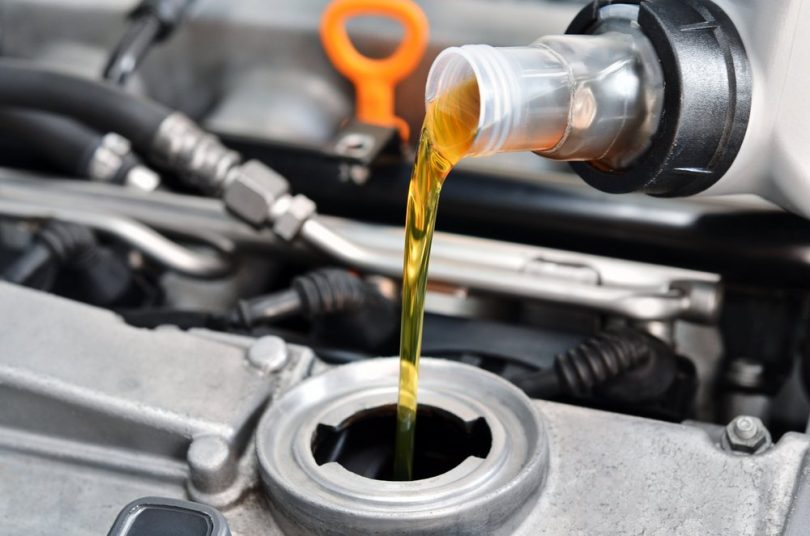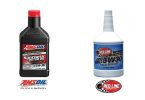The frequency of how you change your car’s diesel oil depends on your driving habits. The terrain and climate, type of oil, and activities like hauling heavy loads can shorten or lengthen the period between oil changes.
If you regularly drive in town, taking shorter trips at lower speeds, you will need to change your oil more often than someone who drives at highway speeds. The diesel engine accumulates contaminants and gunk at lower temperatures and speeds more quickly than when driving at higher speeds or in hotter climates.
We recommend referring to your manufacturer’s guide to find how often to change your diesel oil. Under normal driving conditions and habits, you should change your diesel oil between 7,000 and 10,000 miles, or at least once a year.
If your driving habits include moderate towing or your car has some idling, we advise you to change the oil between 5,000 and 7,000 miles or twice annually.
For people who do heavy towing or vehicles with extensive idling, you should change the diesel oil between 3,000 and 5,000 miles or every three months.
You should not surpass one year of driving or 10,000 miles without changing the engine oil.
What Factors Determine How Often You Should Change the Oil?
Engine type
Car manufacturers build engines with different specifications and performance levels, which affects the maintenance frequency. Vehicles with powerful engines, hauling pickups, and trailers have a shorter driving distance between oil changes than smaller cars.
The manufacturers use mileage and interval measures to help you know when it’s time to change oil for different vehicles, whichever you attain first. Every manufacturer offers a maintenance schedule for its cars.
Mileage
The mileage of your car can affect your oil change frequency. In most cases, engines consume more oil in their early stages. We recommend that you start calculating your engine oil after your first car service for newer cars.
On the other hand, older vehicles usually have higher oil consumption than relatively new cars. If you are driving a vehicle with more than 50,000 miles, you will need to check your oil more often.
Oil and fuel quality
Car engine oils come as synthetic or conventional oil. Conventional engine oil is derived from crude oil and is highly refined, while synthetic oil is more solid.
The refined nature of conventional oil makes it necessary to change your oil frequently. The quality of your oil can shorten or lengthen your oil change interval.
The solid nature of synthetic oil offers a longer oil life as it is more stable at high temperatures. For fewer oil change frequencies, we encourage car owners to use synthetic oil, but that will depend on the type of your car.
The older models work best with conventional oil, while newer vehicles are better off with synthetic oil. Besides, you need to check the recommended interval for an oil change.
Low-quality fuel will contaminate the oil filter, which increases pressure on the oil pump. Furthermore, the quality of the fuel may affect how often you need to change your engine oil. As such, always go for the best quality fuel.
Driving conditions and habits
Driving your car under severe conditions may lead to higher oil consumption, which affects the engine oil change interval. Extreme temperatures and driving on uneven terrain will negatively affect your vehicle’s oil life.
Moreover, your car driving habits impact how often you change your diesel oil. If you drive shorter distances at lower speeds, especially in towns, you need to change your oil sooner than someone driving on highways.
Your oil change frequencies may also increase if you always tow or your vehicle has a prolonged idling period.
When Do You Know It Is the Best Time to Change the Oil?
Check your service mileage sticker
Most mechanics will place an oil change sticker on your windshield to help know the next oil change service. You may find the date or mileage of when your car needs an oil change on the sticker, making it the easiest method to know the time to change the oil.
Oil check light
The oil check light on the dashboard lets you know that your car needs engine oil service. The light may signify low oil levels or a failed oil pump. Car manufacturers offer several tools to help drivers understand their vehicle’s engine status.
We advise you to stop the car and check the oil level if you notice the oil check light. Add fresh oil and check if the light goes off on the dashboard if it is low.
If the light goes off, we recommend you schedule an oil change soon. If otherwise, you have to call a rescue service to get your car thoroughly checked for a damaged pump.
Engine noise and knocking
Oil lubricates your engine. If you notice engine noise and knocking, the moving parts do not get adequate lubrication. The noises could be knocking sounds, light tapping, or cam bearing. The noises may also occur if the oil has lost viscosity. Check the oil level and change it immediately.
Oil smell in your car
The oil smell inside your car is an indication of an oil leak. The smell occurs when the oil leaks onto a hot component and burns away. Get into contact with your mechanic to get yours checked and repaired if necessary.
Excessive mileage
If you have used your car for an extended period without an oil change, it may be necessary to change your oil immediately.
You should never drive your car for more than one year without changing your oil. You will also need to check the mileage to ensure you do not surpass the recommended driving distance for the following oil change.
Dark, dirty oil
Fresh, clean engine oil has a light to dark gold color. Over time due to impurities and heat, the oil darkens. Use the dipstick to check the color of your oil. If you notice the oil is dark or dirty, you will need to replace it with new oil.
Overheating
Avoid driving with an overheating engine. Instead, let it cool and check your oil and coolant levels. Overheating mainly occurs due to low coolant, but low oil may also play a role sometimes.
What Is the Diesel Engine Service Life for a Car?
- Heavy-duty on-/off-road – You should change your oil three times a year for a heavy-duty vehicle.
- Turbo Diesel pickup – The recommended service life for a turbo diesel engine is twice annually.
- Competition service life – Competition service life can help you extend your drain intervals through oil analyses. It determines the best drain interval for lasting protection.










Leave a Comment